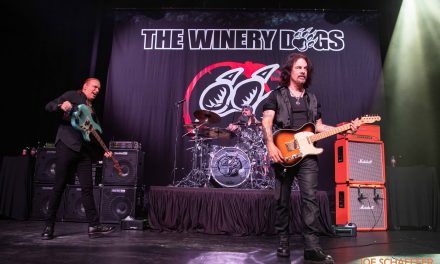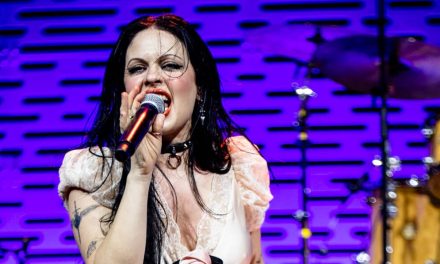
The Past and Future Are One: An Interview with The Opium Cartel
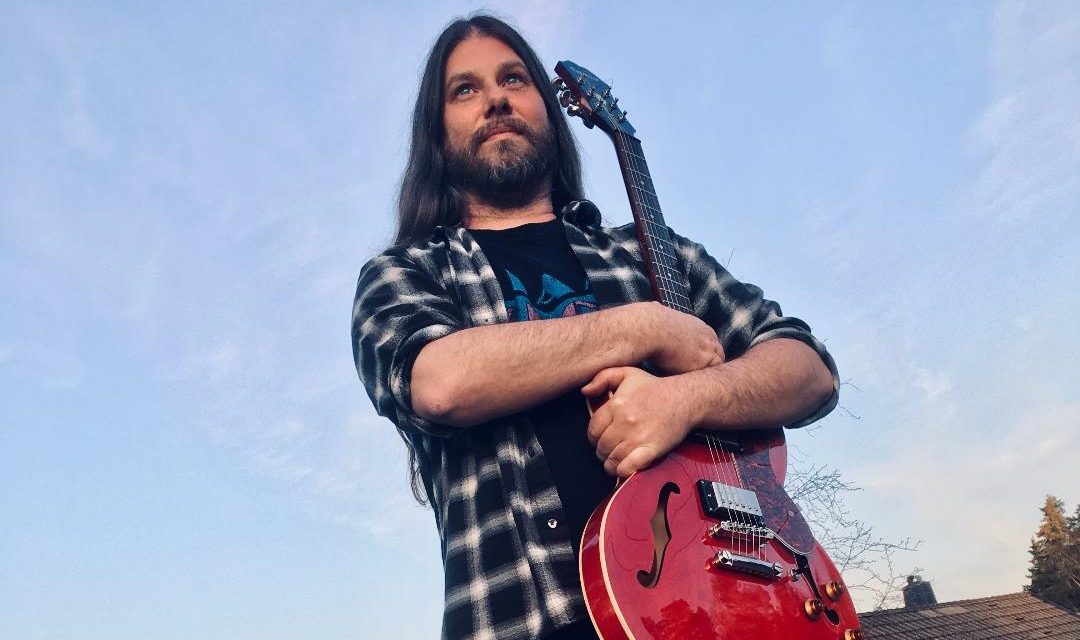
 The Past and Future Are One: An Interview with The Opium Cartel
The Past and Future Are One: An Interview with The Opium Cartel
Jacob Holm-Lupo is a musician and more. He’s released albums as White Willow, Donner and recently released Valor as The Opium Cartel. Holm-Lupo somehow finds a way to combine many styles from many influences into a cohesive and thrilling whole.
In Jacob Holm-Lupo, you’ll find someone who is tirelessly striving to present to the world the sounds in his head, bringing together the most simpatico musicians to help translate his vision and with his Dude Ranch Studio, to mix, master and remaster bands’ music in a way that today’s technology can make possible.
There are a few artists that have come onto my radar in recent years who celebrate the sounds and artists I too enjoy. It’s how they meld these influences into their own music that truly gives me a window into their personality and soul. I don’t have to know what Jacob eats for breakfast to know who he is. Just listen to his latest album Valor as The Opium Cartel to hear joy and love and a sense of playfulness and humor in musical form. Each song is its own entity yet many on the ablum dip into the recognizable waters of early ’80’s synthpop using the keyboards and technology of that time. Yet Holm-Lupo does so without a smirk, he understands that without soul, nostalgia can become simple carbon-copying. The songs on Valor are soulful, endearing and dramatic. These singers and musicians know how to craft emotional and fun songs.
Hi Jacob, thanks for all the great music over the years. I especially enjoyed your Neil Peart tribute as Donner [Ghost Rider into Sunset (for Neil)] and played it on one of my music shows.
Thanks, I am really pleased to hear that. I was devastated with the news of his passing.
You have three musical projects that I know of. How do you differentiate them in your head? When does a song or idea become a Donner, White Willow or The Opium Cartel track?
I tend to know when I sit down to write something. Donner is electronic stuff, stuff without a drum kit, basically. White Willow is prog, which means that there has to be an instrumental section or three in a song, or else … And The Opium Cartel is a bit more open-ended – art-rock, art pop, whatever. I also have an instrumental hard rock project called Telepath, which released an album last year, sort of a Goblin/Fabio Frizzi meets Pentagram mash-up.
It has happened at times that a song has switched lanes, so to speak, that I realized that maybe the tune I thought was an Opium Cartel tune should instead be expanded into a White Willow tune.
On the latest album Valor, many of the songs have a new approach, a more direct and clear lineage to 80’s synth pop but not in the cheesy way so many music creators are representing that sound. You seem to really take the essence of what makes pop so great and are mostly serious and not showy about it. What are some of the touchstones and artists important to you with this sound and how do you make it part of The Opium Cartel sound?
Thanks. I do try to bring some class and dignity to my spin on the 80s – too many people think of the 1980s as the decade of cheese, but there was plenty of taste and elegance as well, like Bryan Ferry, ABC, The Blue Nile, Peter Gabriel, Kate Bush. And those are also some of my touchstones. I grew up with a lot of 80s pop and rock as my background soundtrack – some of the first groups I remember really obsessing over were Ultravox and Japan. Unfortunately, during the sort of 80s renaissance we have had this past decade, we’ve been presented with a sort of homogenized and sterilized version of the decade. Especially with synthwave, both the music and the aesthetics have been reduced to empty symbols – the 8th-note synth-bass pulse and the neon sunset among palm trees. The 80s were a LOT more than that. As for how I make the artists that inspire me part of my sound, I think it is a sort of osmosis. I don’t consciously reflect on it, nor do I try to make things sound like a certain band. It’s more that I maybe approach things from a certain angle informed by sounds I heard growing up. The songwriting is, I think, very much my own, but the way I dress it up is influenced by sounds that resonate all the way back to my childhood.
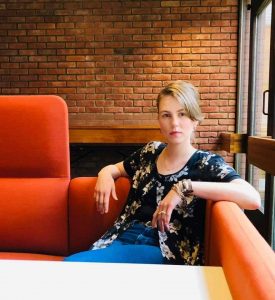
Well, I love synths, and the right synth and the right sound can be all the inspiration I need to write a song. For this album I wanted sounds from the early-to-mid-80s, which was an interesting time when analog synthesis peaked and digital synthesis came along. You had some of the finest, fattest analog polysynths ever made, like the Oberheims or the Yamaha CS80, and you also had early forays into digital synths with the ever-present DX7 or analog-digital hybrids like the PPG Wave. I think the mixture of the warm, epic analog pads from an Oberheim with the colder, percussive sounds of a DX7 for instance, is pure magic, so I definitely wanted to capture that on this record. The synths I have used the most are an Oberheim Matrix-6, a DX7 and an Ensoniq TS-10. There is an added emotional aspect to using these sounds, which is that to my generation at least, hearing these sounds tends to trigger warm and fuzzy memories of simpler, funner times. Not that they necessarily WERE better times, but when people of my age hear, you know, the opening synth chords of Jump or the score to Top Gun, we go, “aaaw, I love that sound!” …
Who are some of the guests on the new album and why did you choose to work with them? What do they contribute to your music?
Well, in addition to the main vocalist, the amazing Silje Huleboer, I also have two guest vocalists. One is Leah Marcu from Israeli prog-metallers Tillian, who I have wanted to work with for a while, and now was the time. She sings on The Curfew Bell, which has an almost 4AD/Dead Can Dance feel which was perfect for her voice. The other guest singer is my daughter, but more on that later. Then I have Airbag’s fantastic guitarist Bjørn Riis, who is simply my favorite Norwegian guitarist and I was really pleased to get him on the album. The incredibly talented saxophonist Ilia Skibinsky, who has played with greats like The Brecker Brothers and Larry Graham, played a solo on In the Streets which is just perfect, and the Russian violinist Maria Grigoryeva both arranged and played the strings on The Curfew Bell, and did work that exceeded my expectations. I knew her playing from her work with Weserbergland, my friend Ketil Vestrum Einarsen’s band. There’s quite a few more on the album, but I don’t know if they qualify as guests, more semi-regulars.
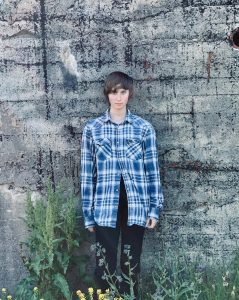
Thanks! It’s funny, because so far her voice and that song seems to be getting the most attention, which is fun for her and of course makes me proud as a dad. Ina is extremely musical and plays both piano, bass and drums. She also has a wonderful voice and I had hoped that I could get her to record a song on the album. Nightwings was the song she liked best, so that’s what we did. I really have not cultivated or pushed her musical talent, she just naturally drifted into it. She started out with piano lessons, and then taught herself the other instruments, and she has always been singing, always… She is in a band of her own and has performed great covers of classic stuff like Toto and Alice Cooper. I definitely think she has a career ahead of her, yes. She is much more talented than her old man!
How did your interest in the production side of music come about? Your albums always sound great. I can appreciate the musical side but then there’s the mix, the clarity, the stuff I have no clue about that goes into making an album. I read you were finally going to replace a desk in your studio that you’ve had since a teen and that you’ve always tried to do the most with what you had.
Well, ever since we recorded our very first album with White Willow back in the mid-90s, I have been fascinated with studios and audio engineering. I have always been bugging every engineer we’ve worked with with a million questions, and eventually I picked up quite a bit from it. Eventually I decided to start recording and mixing our albums on my own, which again led to getting work from other artists. So it’s been a gradual process, and of course with audio work you’re never done learning – I learn new things every time I mix or master a new album. So the audio side of things is really what I love doing the most. I am never happier than behind my desk. My NEW desk now … I am fortunate enough to have my studio upstairs in our house, so I just wake up, make coffee and get to work.
I go out under the stars at night and am often listening to music. I had on your Ardor album and got emotional during a few songs with the way you built them up, the melodies, the vocalists, just the way you craft your songs. I also have noticed that you don’t seem to care about ego, that you’re more of an architect and not so interested in the spotlight, that everything you do is in service to the song. How true is this? Are there moments you need to become the dictator or times you step back and trust your cohorts to do what they excel at? Maybe give an example in one of the songs where the music became more than what you could imagine, where it became bigger than just what was in your head.
Well, first of all I laud your method of listening. I love listening to music when I am out in nature, and I often “test drive” my own songs out on walks, or drives. If the music gels with the nature around me, I know I’m onto something. Often my music is born from inspiration from nature – a quality of light, a beautiful view, things like that. As for ego and spotlight and things like that, I am honestly not interested. In the beginning of my rock career it became clear that I didn’t share the interest of a lot of my fellow musicians – the partying, the stage antics, the fan socializing. What I like is to sit and write my songs, arrange them, record them and mix them. Another part I really enjoy is discovering talented musicians and matching them to songs I have made. I feel a bit like Steely Dan there – I can be very patient when it comes to finding that ONE right instrumentalist for a particular part. And I don’t consider myself much of an instrumentalist, so I am very happy to hand over solos to those who do that well. So I guess in some ways I am more an organizer and facilitator. I would, theoretically, be perfectly happy writing an album that I didn’t play on at all. I think an example of the music becoming more than I imagined would be A Maelstrom of Stars, where Bjørn’s guitar just lifted it to epic proportions.
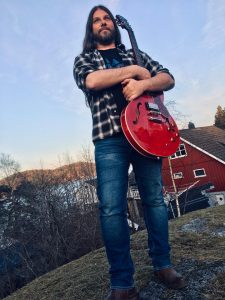
I am ashamed to say that I don’t listen to nearly as much new music as I should. My listening habits these days mostly revolve around 50s and 60s jazz, 70s electronic music and some 80s metal. But there are a few really good metal bands out there that I enjoy, like Spirit Adrift and Haunt, who I guess are both loosely associated with the NWOTHM scene. And of course I listen to whatever my Norwegian colleagues are up to, like White Willow keyboardist Lars Fredrik Frøislie’s symphonic rock band Wobbler, Ketil Vestrum Einarsen’s neo-krauty Weserbergland, not to mention Opium Cartel singer Silje Huleboer and Opium Cartel bassist Ole Øvstedal’s acoustic duo Ole & Silje Huleboer – amazing stuff.
I also enjoy some recent jazz/hip hop crossover stuff like Georgia Anne Muldrow – I really like her album VWETO II which mixes krauty electronics, hip hop rhythms and a free, jazzy vibe.
You also work with artists as a record masterer? Is that the correct term? You also remaster older releases? Who are some of the bands and what is it you do for their songs as a masterer and remasterer?
Well, mastering is like putting the final polish on an album. I get the final mix and make sure it’s balanced in terms of frequencies and dynamics, that the songs work together sonically as a whole, and at the very end I sprinkle some audio fairy dust on it to give that last shine. When I remaster, which I have done with stuff like vintage Norwegian proggers Ruphus’ back catalog as well as Airbag, it’s a matter of maybe rectifying less than ideal audio from the past and making it sound fresh and good to modern ears – without sacrificing the original feel or dynamics. It’s always a bit of a balancing act. As for mastering new albums I work with all kinds of stuff, from prog to hip hop.
You seem to always be learning and challenging yourself. What are you working on, learning to work with as far as instruments and the technical side of music making?
Lately I have been trying to learn from the old jazz masters. I think I tend to be a little rhythmically stiff and bound, like so many white guys, so I am trying to learn to loosen up and groove a bit more … Too early to tell if I’ll succeed, but you gotta try …
Thanks for your time!
Thank you for a great interview!
(Interview by Bret Miller)
LINKS:
Bandcamp: https://theopiumcartel.bandcamp.com/album/valor
Facebook: https://www.facebook.com/jacob.holmlupo
Twitter: https://twitter.com/HolmLupo
Youtube: https://www.youtube.com/channel/UCnYUz5FZP_zVZYJA9l9VAPg
Dude Ranch Studio: https://www.duderanchstudio.com/
Donner: https://donner.bandcamp.com/
White Willow: https://whitewillow.bandcamp.com/










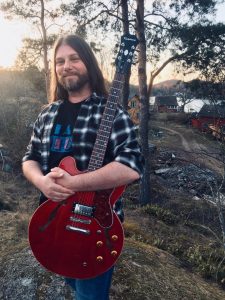 The Past and Future Are One: An Interview with The Opium Cartel
The Past and Future Are One: An Interview with The Opium Cartel